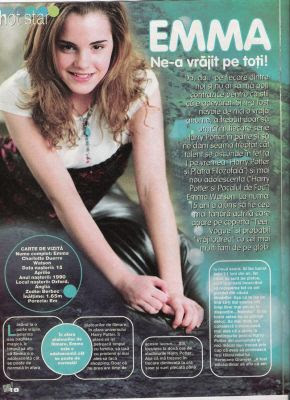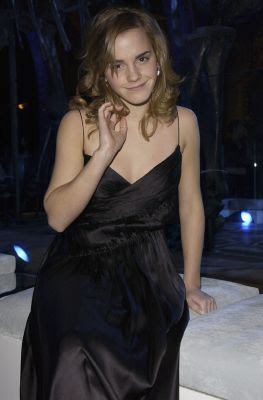Photo 3-5










Criticism and praiseEarly in its history, Harry Potter received overwhelmingly positive reviews, which helped the series to quickly grow a large readership. Following the 2003 release of Harry Potter and the Order of the Phoenix however, the books received strong criticisms from a number of distinguished authors and academics. A. S. Byatt authored a New York Times editorial calling Rowling's universe a “secondary world, made up of intelligently patchworked derivative motifs from all sorts of children's literature written for people whose imaginative lives are confined to TV cartoons, and the exaggerated (more exciting, not threatening) mirror-worlds of soaps, reality TV and celebrity gossip". Byatt went on to analyse the series' widespread appeal and concluded that this "derivative manipulation of past motifs" is for adult readers driven by a desire to regress to their "own childish desires and hopes" and for younger readers, "the powerful working of the fantasy of escape and empowerment, combined with the fact that the stories are comfortable, funny, just frightening enough". The end result being the levelling "of cultural studies, which are as interested in hype and popularity as they are in literary merit".Likewise, author Fay Weldon took issue with the series saying that it was "not what the poets hoped for, but this is not poetry, it is readable, saleable, everyday, useful prose". Literary critic Harold Bloom also attacked the literary worth of Potter, saying “Rowling's mind is so governed by clichés and dead metaphors that she has no other style of writing." Moreover, Bloom disagreed with the common notion that Harry Potter has been good for literature by encouraging children to read, contending that "Harry Potter will not lead our children on to Kipling's Just So Stories or his Jungle Book. It will not lead them to Thurber's Thirteen Clocks or Kenneth Grahame's Wind in the Willows or Lewis Carroll's Alice."
Charles Taylor of Salon.com took issue with Byatt's criticisms in particular. While he conceded that she may have "a valid cultural point — a teeny one — about the impulses that drive us to reassuring pop trash and away from the troubling complexities of art", he rejected her claims that the series is lacking in serious literary merit and that it owes its success merely to the childhood reassurances it offers; Taylor stressed the progressively darker tone of the books, shown by the murder of a classmate and close friend and the resulting psychological wounds and social isolation each causes. Taylor also pointed out that Philosopher's Stone, said to be the most lighthearted of the six published books, disrupts the childhood reassurances that Byatt claims spurs the series' success: the book opens with news of a double murder, for example. Taylor specifically cites "the devastating scene where Harry encounters a mirror that reveals the heart's truest desire and, looking into it, sees himself happy and smiling with the parents he never knew, a vision that lasts only as long as he looks into the glass, and a metaphor for how fleeting our moments of real happiness are", then asks rhetorically if "this is Byatt's idea of reassurance?" Taylor concludes that Rowling's success among children and adults is "because J.K. Rowling is a master of narrative".
Stephen King agreed with Taylor calling the series "a feat of which only a superior imagination is capable", along with declaring "Rowling's punning, one-eyebrow-cocked sense of humour" to be "remarkable". However, he does write that despite the story being "a good one", he is "a little tired of discovering Harry at home with his horrible aunt and uncle", the formulaic beginning of each of the six books published to date. King has also joked that "[Rowling]'s never met an adverb she didn't like!" He does however predict that Harry Potter "will indeed stand time's test and wind up on a shelf where only the best are kept; I think Harry will take his place with Alice, Huck, Frodo, and Dorothy and this is one series not just for the decade, but for the ages."
Yet another vein of criticism comes from some feminist circles, Christine Schoefer prominent among them, who contend that the novels are patriarchal and chauvinistic. According to Schoefer the series presents a world filled with stereotypes and adherence to "the conventional assumption that men do and should run the world." Schoefer cites Harry's courage in dangerous situations in contrast to Hermione's apparent emotional frailty when confronting the same, along with her need for Harry and Ron's approval. Similarly, she contrasts the female Professor McGonagall and her similar frailty under stress compared to the composed and farsighted Dumbledore. In addition to this is the attachment of fraud to females (Professor Trelawney, Professor Umbridge), immaturity (constantly giggling, naïve and catty school girls), and a general lack of daring, bold heroines.
The critic Anthony Holden wrote in The Observer on his experience of judging Harry Potter and the Prisoner of Azkaban for the 1999 Whitbread Awards. His overall view of the series was very negative - "the Potter saga was essentially patronising, very conservative, highly derivative, dispiritingly nostalgic for a bygone Britain" and adds that "several of the Whitbread judges agreed with me".
Charles Taylor of Salon.com took issue with Byatt's criticisms in particular. While he conceded that she may have "a valid cultural point — a teeny one — about the impulses that drive us to reassuring pop trash and away from the troubling complexities of art", he rejected her claims that the series is lacking in serious literary merit and that it owes its success merely to the childhood reassurances it offers; Taylor stressed the progressively darker tone of the books, shown by the murder of a classmate and close friend and the resulting psychological wounds and social isolation each causes. Taylor also pointed out that Philosopher's Stone, said to be the most lighthearted of the six published books, disrupts the childhood reassurances that Byatt claims spurs the series' success: the book opens with news of a double murder, for example. Taylor specifically cites "the devastating scene where Harry encounters a mirror that reveals the heart's truest desire and, looking into it, sees himself happy and smiling with the parents he never knew, a vision that lasts only as long as he looks into the glass, and a metaphor for how fleeting our moments of real happiness are", then asks rhetorically if "this is Byatt's idea of reassurance?" Taylor concludes that Rowling's success among children and adults is "because J.K. Rowling is a master of narrative".
Stephen King agreed with Taylor calling the series "a feat of which only a superior imagination is capable", along with declaring "Rowling's punning, one-eyebrow-cocked sense of humour" to be "remarkable". However, he does write that despite the story being "a good one", he is "a little tired of discovering Harry at home with his horrible aunt and uncle", the formulaic beginning of each of the six books published to date. King has also joked that "[Rowling]'s never met an adverb she didn't like!" He does however predict that Harry Potter "will indeed stand time's test and wind up on a shelf where only the best are kept; I think Harry will take his place with Alice, Huck, Frodo, and Dorothy and this is one series not just for the decade, but for the ages."
Yet another vein of criticism comes from some feminist circles, Christine Schoefer prominent among them, who contend that the novels are patriarchal and chauvinistic. According to Schoefer the series presents a world filled with stereotypes and adherence to "the conventional assumption that men do and should run the world." Schoefer cites Harry's courage in dangerous situations in contrast to Hermione's apparent emotional frailty when confronting the same, along with her need for Harry and Ron's approval. Similarly, she contrasts the female Professor McGonagall and her similar frailty under stress compared to the composed and farsighted Dumbledore. In addition to this is the attachment of fraud to females (Professor Trelawney, Professor Umbridge), immaturity (constantly giggling, naïve and catty school girls), and a general lack of daring, bold heroines.
The critic Anthony Holden wrote in The Observer on his experience of judging Harry Potter and the Prisoner of Azkaban for the 1999 Whitbread Awards. His overall view of the series was very negative - "the Potter saga was essentially patronising, very conservative, highly derivative, dispiritingly nostalgic for a bygone Britain" and adds that "several of the Whitbread judges agreed with me".
0 ความคิดเห็น:
แสดงความคิดเห็น
สมัครสมาชิก ส่งความคิดเห็น [Atom]
<< หน้าแรก